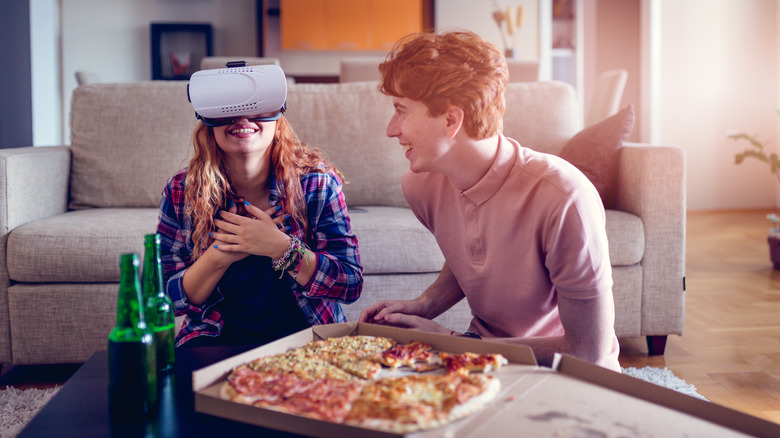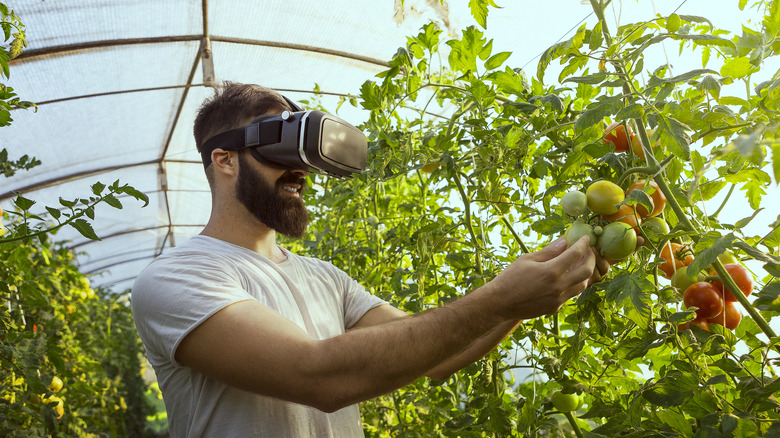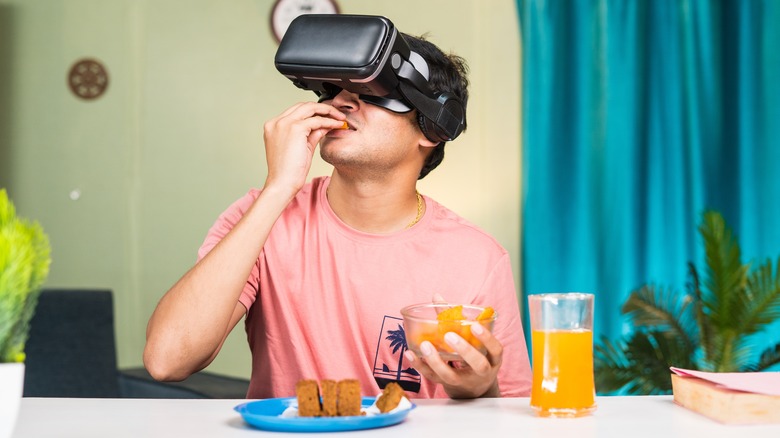How Your Food Smells Is Important ... Especially In VR
Contrary to popular belief, you eat with your nose first. At the risk of stating the obvious, scent is one of the most important senses. We've all had our stomachs start to rumble after an appetizing odor wafts into our faces. In the modern age, our senses have become a part of the technological realm, and for the first time, the smell of food in virtual reality is a real factor.
Judith Amores, a researcher specializing in artificial smells created for modern technology, said in an interview with Scientific American, "... Scent is directly connected to the emotional and memory parts of the brain, so there are a lot of applications related to well-being and health ..." The science behind how virtual food plays with our senses is rooted in psychology. This new field of food research has already brought virtual victuals to a new level. It will have (and has had) important impacts on the human experience. With just a VR headset, you can now smell many delicious foods — yet another massive innovation in technology that is rapidly reaching new heights.
Scented headsets and the brain
The idea of using smells to enhance a VR experience is not entirely novel. Smell-O-Vision – a technology that released smells to cinema crowds in the 1960s — was widely dismissed by the general public due to its ineffectiveness. However, new scent technology uses temperature-controlled diffusion, allowing the intensity of the odor to be easily altered. Furthermore, new headsets have apparatuses that allow users to receive smells more directly. Instant scent stimuli in conjunction with visuals have given VR technology noticeable neurological effects.
The part of the brain that operates your sense of smell lives directly next to the part responsible for your feelings. As such, the whiffs that waft your way throughout the day can change your emotional state. This helps explain why the smell of food is so important in a virtual environment. In fact, a study published in the scientific journal Neuropsychologia suggests that smell activates your brain more than sight, which helps highlight how scent cues can change how you feel about food.
The psychological implications of VR odors
It's easy to understand why enjoying a wide array of scents in a virtual reality environment is a desirable experience. However, the technology could have impacts that go beyond the world of food and into the field of human health. A study from Frontiers in Psychology tells us that immersive virtual reality experiences can elicit the same physical responses in the body as the actual events being virtually replicated.
VR smells are an especially interesting innovation in a post-COVID-19 society. Judith Amores thinks VR technology can help people recovering from the virus to retrain their brain's ability to perceive smell. This technology can also change the social psychology of meals. Eating by yourself takes a toll on your mental health, and the social effects of lockdowns and social distancing could be mitigated with the assistance of VR. Scent increases the immersion of a virtual reality experience, which makes it a useful tool in the field of psychology.


